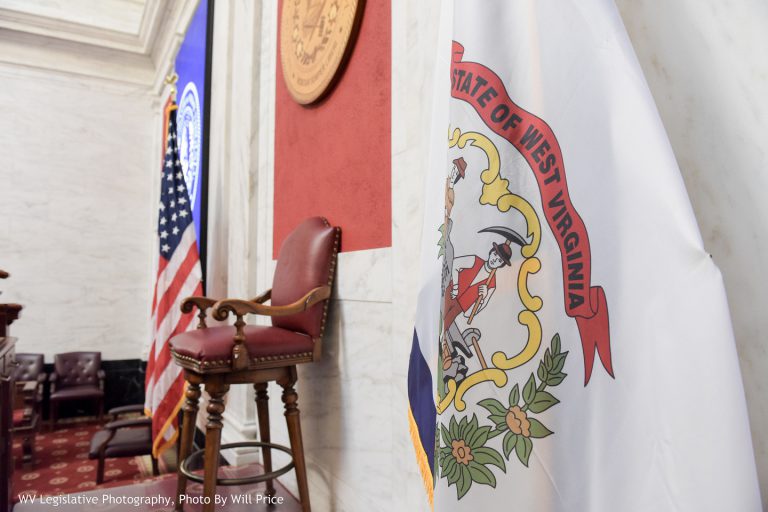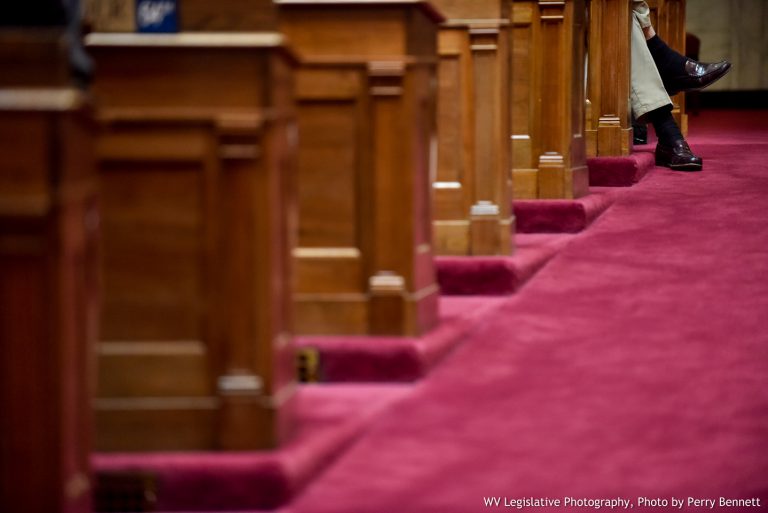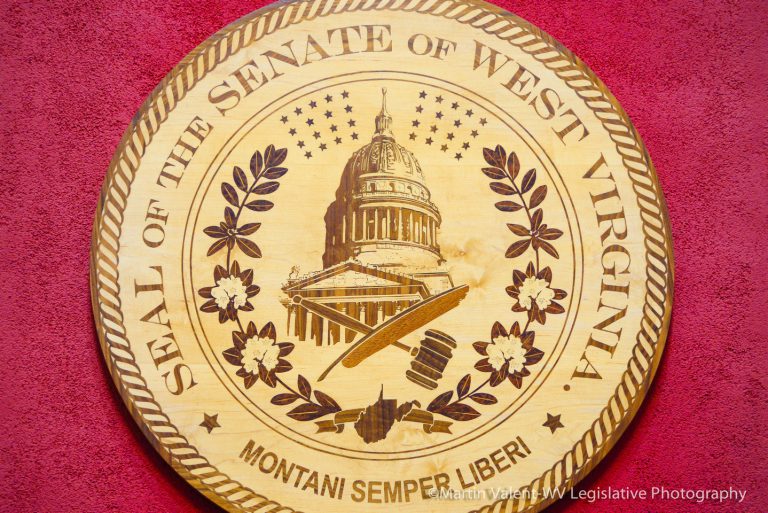As of 4 p.m., Wednesday, January 22, 2003, the 15th day of the 2003 Regular Legislative Session, 212 bills have been introduced in the Senate. Of those, the following eight were passed by the Senate this week and will now go to the House of Delegates for its consideration:
Committee Substitute for Senate Bill 4 would require that any default judgement handed down in a magistrate court be sent via registered mail to the last known address of the defendant in the case. The certified mail would be taxed as a cost of court proceedings.
Senate Bill 52 would eliminate the $100 bond required to be paid to the clerk of a circuit court before a summons is issued in order to sue out-of-state defendants involved in automobile accidents in West Virginia.
Senate Bill 93 relates to violence against public employees. This bill would create new penalties for assault or battery against a public employee if the employee was assaulted or
battered while participating in the scope of his or her duty. The penalties would be: assault – fine of $50 to $100 and jail, not less than 24hours or more than six months; battery – not less than 24-hours or more than 12 months of jail time plus $100 to $500 fine.
Senate Bill 82 would extend the time period for the study of the state system of Orphan Roads and Bridges to January 30, 2004. By that date a proposal would be required for submission to the Legislature that would formulate an Orphan Roads and Bridges policy. As such, this bill would extend the Orphan Roads and Bridges acquisition and maintenance program to December 31, 2005.
Sunset Bills Passed by the Senate:
Senate Bill 163 would continue the Drivers’ Licensing Advisory Board.
Senate Bill 164 would continue the Office of Coalfield Community Development.
Senate Bill 165 would continue the Commission for National and Community Service.
Senate Bill 166 would continue the Oil and Gas Inspectors’ Examining Board.
A Sampling of Bills Introduced in the Senate:
Senate Bill 168 would establish a state minimum salary supplement for certain professional personnel holding a nationally recognized professional certification; for instance, professional educators who hold a certification in their fields of expertise.
Senate Bill 175 would reduce the threat of bio-terrorism by authorizing the Secretary of Health and Human Resources to establish a certification process for facilities or other entities that have a legitimate need to possess potentially dangerous biological agents and toxins, by limiting lawful possession and transfer of these agents and toxins to certified entities, and by establishing criminal and civil penalties for violations.
Senate Bill 184 would make it illegal to “engage in a call” on a mobile phone while operating a motor vehicle. There are provisions in the bill which would allow the operation of a vehicle while using a hands-free-phone. The bill also allows for the use of a mobile phone in emergency situations.
Senate Bill 181 would remove the requirement that a home-school teacher have formal education of at least four years higher than the most academically advanced child they are instructing.
Senate Bill 171 would modify seat belt and child restraint requirements and change the offense of failure to wear safety belts to a primary offense. The bill would require all vehicle occupants to wear seatbelts, and would prohibit children under the age of 16 from riding in an open or closed cargo area of a passenger vehicle, van, pickup truck or uncovered open bed trailer.
Senate Bill 173 would exempt the sale of United States Flags from the consumers sales tax.
A Sampling of Senate Standing Committee Reports
Senate Finance Committee on Agriculture: The Senate Standing Committee on Agriculture met this week and was presented with a report covering many issues regarding the Department of Agriculture’s budget. The main problem discussed during the committee meeting was the projected difficulties should a major crisis arise, such as a virus outbreak or livestock contamination. Concerns addressed covered the loss of man power and the lack of proper equipment. Another issue was in regard to the Special Revenue account. A representative from the Department of Agriculture requested more funding to be allocated to staff.
Judiciary: The committee met and considered several legislative measures, including Committee Substitute for Senate Bill 170, which was approved and moved to the Senate Finance Committee. This measure would create the Women’s Right to Know Act. The bill would require that pregnant women be provided certain information in a prescribed form prior to undergoing an abortion. This is also referred to as “Informed Consent” and would create a minimum period of delay (24 hours) between when a woman decides to have an abortion and when she undergoes the procedure. The physician would have to give the woman considering the abortion certain information, which include: the name of the physician who is performing the procedure, any medical risks involved with having the abortion, the probable gestational age of the unborn child, and the medical risks involved if she should carry the child to term.
Senate Bill 186 was also presented to the committee counsel. The bill defines “aggrieved persons” for purposes of judicial review regarding a decision of the board of zoning. An aggrieved person is a person who is denied the relief sought or will suffer a peculiar injury, prejudice or inconvenience beyond which other residents of the county or municipality may suffer. The bill was sent on to the Senate with the recommendation that it pass.






